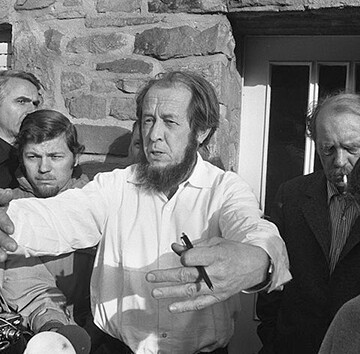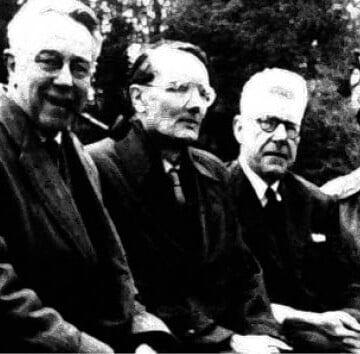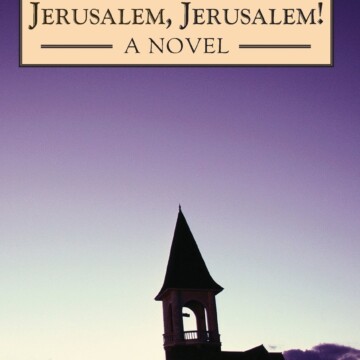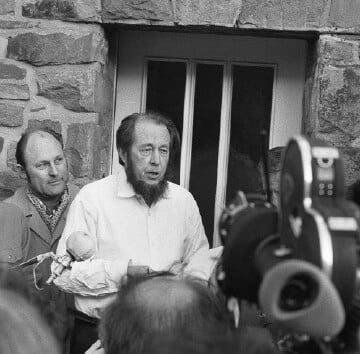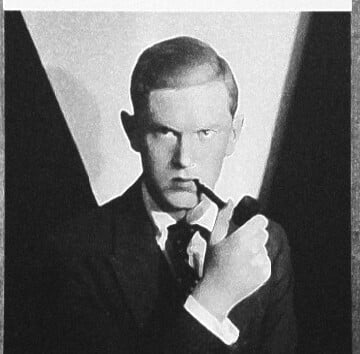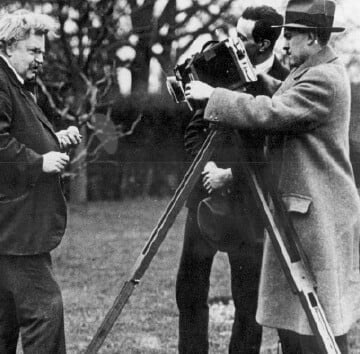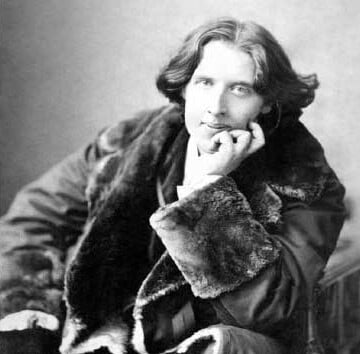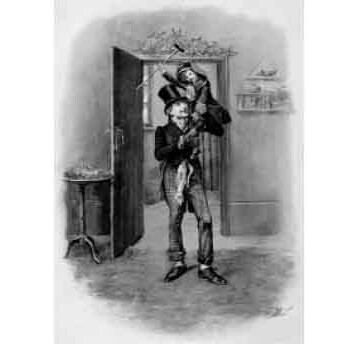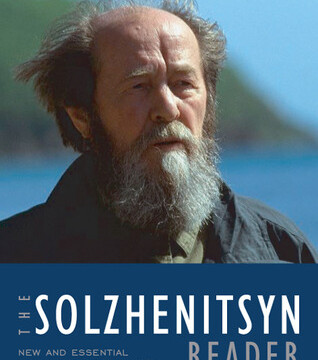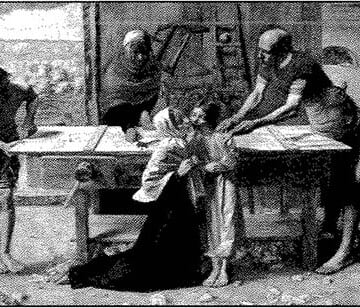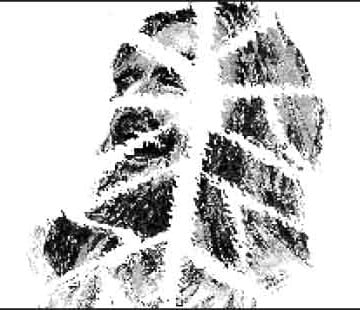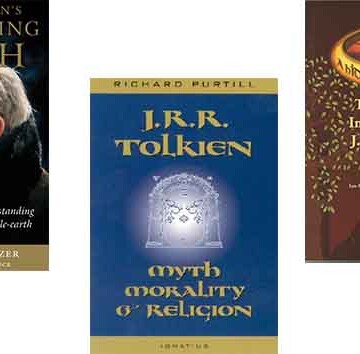One of the root problems facing our beleaguered world is that many of our contemporaries are belaboring the past as a burden, believing that the legacy and traditions of Western Civilization are a millstone around modernity’s neck. Cast off the shackles of the past, with its outmoded morality and outdated way of doing things, and...
Author: Joseph Pearce (Joseph Pearce)
More Than an Inkling
From the October 2015 issue of Chronicles. “Every great man nowadays has his disciples,” wrote Oscar Wilde, “and it is always Judas who writes the biography.” Even conceding that Wilde was writing for effect, it is nonetheless true that biographers often betray their subjects with either a kiss or a curse, and that the kiss...
Holy Ghosts and the Spirit of Christmas
From the December 2014 issue of Chronicles. It has been argued that, after Shakespeare, Charles Dickens is the finest writer in the English language. His works have forged their way into the canon to such a degree that it is much more difficult to know which of his novels to leave off the recommended reading...
Realism of the Real
A century ago, the Kansas-born and Vermont-based writer Dorothy Canfield Fisher spoke of the importance of place, as well as of time, in the formation of a culture and in the shaping of individuals within a culture: Some wise man has said that the date of a man’s life depends not on the calendar, but...
Revisiting Brideshead
From the June 2015 issue of Chronicles. It seems to me that in the present phase of European history the essential issue is no longer between Catholicism, on one side, and Protestantism, on the other, but between Christianity and Chaos. . . . Today we can see it on all sides as the active negation...
Healthcare: Seeking Solidarity Without Socialism
Healthcare is a problem, and not merely a sociopolitical one. If we are to believe the media pundits, it’s also very much a religious question. Nicholas Kristoff of the New York Times berates Paul Ryan for attempting to repeal the Affordable Care Act on the grounds that Ryans’s opposition to ObamaCare is a denial of...
Race Against Reason
We are living in a racially charged climate. Problems associated with the relations between the races seem endemic to all areas of our sad and beleaguered culture. Discussions of law enforcement are dominated by the alleged racism of police officers and whether “black lives matter.” The ongoing debate on immigration seems centered on the alleged...
Fighting the Dragon With Solzhenitsyn
Do great men make history? Or does history make great men? One thing’s for sure: History sometimes smothers great men, as Thomas Gray suggests in his famous elegy written in a country churchyard, and as the rows of endless graves from Arlington to the Somme demonstrate with brutal candor. “Some mute inglorious Milton here may...
Becoming Like Little Children
C.S. Lewis’s classic children’s story The Lion, the Witch and the Wardrobe is one of the ten bestselling books of all time, standing shoulder to shoulder with The Lord of the Rings and The Hobbit in the elite list of world bestsellers. What is it about the genre of fantasy fiction that makes it so...
More Than an Inkling
“Every great man nowadays has his disciples,” wrote Oscar Wilde, “and it is always Judas who writes the biography.” Even conceding that Wilde was writing for effect, it is nonetheless true that biographers often betray their subjects with either a kiss or a curse, and that the kiss is sometimes more deadly than the curse. ...
Revisiting Brideshead
It seems to me that in the present phase of European history the essential issue is no longer between Catholicism, on one side, and Protestantism, on the other, but between Christianity and Chaos. . . . Today we can see it on all sides as the active negation of all that western culture has stood...
The Nightmare That Wakes Us Up
G.K. Chesterton had a low opinion of his own abilities as a novelist. “[M]y real judgment of my own work,” he confessed, “is that I have spoilt a number of jolly good ideas in my time”: I think The Napoleon of Notting Hill was a book very well worth writing; but I am not sure...
Epiphanies of Grace
“There is no such thing as a moral or an immoral book. Books are well written, or badly written. That is all.” —Oscar Wilde, from the Preface to The Picture of Dorian Gray Oscar Wilde wrote several first-rate plays, on which his literary reputation principally rests, and a number of mostly...
Holy Ghosts and the Spirit of Christmas
It has been argued that, after Shakespeare, Charles Dickens is the finest writer in the English language. His works have forged their way into the canon to such a degree that it is much more difficult to know which of his novels to leave off the recommended reading list than it is to choose which...
The Soul of a Poet
My generation is perhaps the last to whom the figure of Aleksandr Sol-zhe-nitsyn looms as large as a legend. I have vague, hazy recollections as a boy, and as a teenager, of the man in the news who was depicted as a hero against Soviet totalitarianism. I was eight when Solzhenitsyn was expelled from the...
Small Is Beautiful Versus Big Is Best
The phrase “Small is beautiful” was coined, or at least popularized, by the economist E.F. Schumacher, who chose it for the title of his ground-breaking international best-seller, published in 1973, that exploded like a beneficent bomb, demolishing, or at least throwing into serious question, many of the presumptions of laissez-faire economics. The subtitle of Schumacher’s...
The Romantic Reaction
In the Afterword to the third edition of The Pilgrim’s Regress, C.S. Lewis argued that Romanticism had acquired so many different meanings that it had become meaningless. “I would not now use this word . . . to describe anything,” he complained, “for I now believe it to be a word of such varying senses...
On the Chesterton Review
The Chesterton Review continues on, after celebrating its 30th anniversary last year. Back in 1974, on the centenary of the birth of the great English writer G.K. Chesterton, a small and seemingly insignificant literary journal was launched in England in honor of his memory. At the time, it seemed that the memory was fading. England,...
Man and Everyman
The Abolition of Man, C.S. Lewis’s masterful critique of the relativism that was as rampant in his day as it is in ours, represented the culmination of the author’s quest for the quintessential meaning of man’s being and purpose. Always a diligent searcher after truth, Lewis had climbed a long and arduous path from the...
Letting the Catholic Out of the Baggins
“Poetry requires not an examining but a believing frame of mind.” —T.B. Macaulay In the United Kingdom, back in 1997, Tolkien’s The Lord of the Rings was voted “the greatest book of the twentieth century” in several major polls, emerging as a runaway winner ahead of its nearest rival, Orwell’s 1984. Tolkien was also voted...
